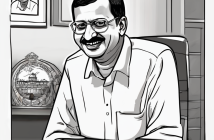The Waqf Amendment Bill is shaking up Bihar’s political landscape as the 2025 elections loom. Prashant Kishor’s scathing attack on Nitish Kumar’s JD(U) for backing the bill highlights hypocrisy and risks alienating Muslim voters. With polarization surging and RJD eyeing gains, this keyword-rich controversy—think “Waqf Bill impact” and “Bihar elections”—could redefine alliances and power in the state. Dive into the drama, stakes, and strategies driving this electoral showdown.
The Waqf Amendment Bill, passed by India’s Parliament on April 5, 2025, has ignited a fierce debate reverberating far beyond New Delhi. This legislation is poised to reshape the political landscape in Bihar, where assembly elections are slated for October 2025. Prashant Kishor, the outspoken chief of the Jan Suraaj Party, has emerged as a vocal critic, targeting both the bill and Bihar Chief Minister Nitish Kumar’s Janata Dal (United) (JD(U)) for supporting it. With accusations of hypocrisy, political polarization, and a brewing backlash from the Muslim community, the stakes couldn’t be higher. Here’s a deep dive into how this bill could influence Bihar’s upcoming elections, why Kishor calls out Kumar, and what it all means for the state’s political future.
How Might the Waqf Bill Impact the Upcoming Bihar Elections?
The Waqf Amendment Bill, which introduces greater government oversight into properties managed by Waqf Boards, has stirred unease among Bihar’s sizable Muslim population—about 17% of the state’s 104 million residents, per the 2011 census. With elections just months away, this demographic could prove decisive, especially in nearly 50 constituencies where Muslims hold significant sway, like Kishanganj, Katihar, and Araria.
A Shift in Muslim Votes
Historically, Nitish Kumar’s JD(U) enjoyed strong Muslim support, particularly during his anti-BJP stance in the 2014 Lok Sabha and 2015 Assembly elections, where alliances with the Rashtriya Janata Dal (RJD) secured up to 80% of Muslim votes. However, that trust has eroded since Kumar realigned with the BJP-led NDA. In the 2020 Assembly polls, JD(U) garnered just 5% of Muslim votes, according to CSDS Lokniti surveys. The party’s backing of the Waqf Bill could widen this gap further, as evidenced by the resignations of five prominent Muslim JD(U) leaders, including Mohammad Qasim Ansari and Shah Nawaz Malik, in protest.
RJD and Jan Suraaj Seize the Opportunity
The RJD, led by Tejashwi Yadav, is already capitalizing on this discontent. Yadav has vowed to “consign the bill to the dustbin” if his party wins in 2025 while also challenging its constitutionality in the Supreme Court. Meanwhile, Prashant Kishor is positioning Jan Suraaj as a fresh alternative, rallying Muslim voters with promises of genuine representation. His participation in protests alongside the All India Muslim Personal Law Board (AIMPLB) signals a calculated move to peel away votes from both JD(U) and RJD.
Electoral Math at Play
Bihar’s 243 assembly seats mean even a small swing in voter sentiment can tip the scales. If Muslim voters, traditionally a reliable RJD bloc, split between RJD and Jan Suraaj—or even boycott JD(U) entirely—the NDA’s hold could weaken. For example, in 2015, the Mahagathbandhan (RJD-JD(U)-Congress) swept 178 seats with unified Muslim support. A fragmented vote in 2025 could hand the opposition an edge, making the Waqf Bill a potential game-changer.
Why Does Prashant Kishor Believe Nitish Kumar Is Hypocritical?
Prashant Kishor’s criticism of Nitish Kumar is sharp and personal. He accuses the Chief Minister of betraying his own principles by supporting the Waqf Bill despite decades of projecting himself as a secular leader and advocate for Muslim welfare.
The Hypocrisy Charge Explained
Kishor points to Kumar’s public persona—built on invoking icons like Mahatma Gandhi, Jayaprakash Narayan, and Ram Manohar Lohia—as clashing with his actions. “People like Nitish Kumar tell Muslims every day they are their well-wishers, yet vote for a bill many oppose,” Kishor said at a Patna rally. He argues that Kumar’s support enables the BJP to push a divisive agenda, despite JD(U)’s claim of addressing Muslim concerns through the bill’s amendments.
A Pattern of Contradictions
This isn’t the first time Kishor has called out Kumar’s flip-flops. As a former JD(U) member during the 2019 CAA-NRC debates, Kishor witnessed Kumar back controversial laws while staying silent publicly—a tactic he says repeats now. Kumar’s silence on the Waqf Bill, even as JD(U) voted for it in Parliament, fuels Kishor’s narrative of duplicity.
Historical Blame Over BJP
Kishor’s boldest claim? “History will blame Nitish Kumar more than the BJP.” He argues that without allies like JD(U), the BJP—lacking a Lok Sabha majority—couldn’t have passed the bill. Kumar’s 12 MPs were pivotal in the 288-232 Lok Sabha vote, amplifying his role in what Kishor calls a “rushed, polarizing law.”
What Role Does Political Polarization Play in the Waqf Bill Debate?
The Waqf Bill has become a lightning rod for India’s deepening political divide, and Bihar is ground zero for this clash.
A Tool for Division
Critics, including Kishor and the opposition, see the bill as a BJP strategy to polarize voters along religious lines ahead of key elections. By increasing government control over Waqf properties—worth over $14 billion nationally—and adding non-Muslims to Waqf Boards, the bill is framed by opponents as an attack on Muslim autonomy. Sonia Gandhi of Congress called it a “brazen assault” on the Constitution, while RJD’s posters dubbing Kumar “Cheatish Kumar” in RSS attire amplify the narrative of betrayal.
Muslim Community Reaction
The Muslim community’s response has been swift and vocal. Protests by groups like AIMPLB, backed by Kishor, highlight fears that the bill undermines Article 26, which guarantees religious freedom. In Bihar, posters comparing Kumar to a “chameleon” have surfaced, reflecting anger over JD(U)’s stance. This unrest could solidify opposition to the NDA, especially in Muslim-dominated districts.
BJP’s Counter-Narrative
The BJP and its allies, including JD(U), argue the bill modernizes Waqf management, empowers Muslim women, and curbs corruption. PM Narendra Modi hailed its passage as a “watershed moment.” Yet, this defense struggles to quell accusations of political opportunism, particularly as elections loom.
How Has JD(U) Responded to Prashant Kishor’s Criticisms?
JD(U) has faced a barrage of criticism but is holding firm, downplaying the fallout and defending its position.
Dismissal of Resignations
Party leaders have brushed off the resignations of Muslim figures as “inconsequential.” National spokesman Rajiv Ranjan Prasad claimed defectors like Qasim Ansari and Shahnawaz Malik were minor players, not core members. “Ansari got 499 votes out of 3.2 lakh in an election—his exit isn’t news,” quipped JD(U)’s Neeraj Kumar.
Defending the Bill
JD(U) insists the bill benefits Muslims by addressing disputes and ensuring transparency. Union Minister Lalan Singh praised Kumar’s “secular policies,” citing past reforms like educational initiatives for Muslims. The party also highlights amendments it influenced, like avoiding retrospective implementation, as proof of its balanced approach.
Countering Kishor
On Kishor, JD(U) accuses him of grandstanding for electoral gain. An anonymous party leader told The New Indian Express, “Kishor is trying to derive political mileage by raising the Waqf issue.” Despite his fiery rhetoric, they argue his Jan Suraaj Party lacks the grassroots heft to challenge JD(U)’s established base.
The Bigger Picture: Bihar’s Political Future
The Waqf Amendment Bill isn’t just a policy debate—it’s a litmus test for Bihar’s shifting alliances and voter loyalties. It’s a high-stakes gamble for Nitish Kumar: aligning with the BJP risks alienating Muslims, but breaking away could destabilize the NDA. For Prashant Kishor, it’s a chance to disrupt the status quo, though his untested party faces an uphill climb. And for the RJD, it’s an opening to reclaim its mantle as the Muslim community’s champion.
As October 2025 nears, the bill’s fallout will likely dominate campaigns, rallies, and headlines. Will it fracture the NDA’s grip on Bihar, or will JD(U) weather the storm? One thing’s clear: the Waqf Bill has set the stage for a bruising electoral battle, with trust, identity, and power hanging in the balance. Stay tuned—Bihar’s political drama is just heating up.
Conclusion
The Waqf Amendment Bill has thrust Bihar into a political maelstrom ahead of the 2025 elections, with Prashant Kishor’s fierce critique of Nitish Kumar amplifying the stakes. This contentious legislation threatens to reshape voter dynamics, particularly among Muslims, as polarization deepens and trust in governance wavers. Keywords like “Waqf Bill impact,” “Bihar elections 2025,” and “Nitish Kumar hypocrisy” dominate the discourse, signaling a seismic shift in alliances. Whether it’s JD(U)’s resilience, RJD’s resurgence, or Jan Suraaj’s rise, this debate will define Bihar’s future. For political analysts and voters alike, the countdown to October 2025 is a keyword-rich saga of power and principle.




